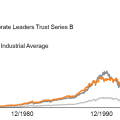Common Mistakes to Avoid When Starting Your Investment Journey
Starting Your Investment Journey? Watch Out for These Common Mistakes!
Congratulations on taking the first step towards securing your financial future! Investing is an exciting yet daunting journey, especially for beginners. While it’s natural to feel overwhelmed, making informed decisions can help you avoid costly mistakes and set yourself up for success. In this article, we’ll dive into some common pitfalls to watch out for when starting your investment journey.
1. Not Understanding Your Financial Goals
Before investing, it’s essential to define what you want to achieve. Are you saving for a down payment on a house? Retirement? A big purchase? Knowing your goals will help you determine the right asset allocation and risk tolerance for your investments. Take some time to reflect on your priorities and write down specific, measurable objectives.
2. Lack of Risk Tolerance
Investing always involves some level of risk. However, if you’re not comfortable with market fluctuations or don’t understand how to manage risk, you might end up losing more than you gain. Start by assessing your risk tolerance: Are you a high-risk, high-reward type or do you prefer stability? Be honest with yourself, and consider speaking with a financial advisor if needed.
3. Insufficient Emergency Fund
Before investing, make sure you have a solid emergency fund in place. This should cover 3-6 months of living expenses, providing a cushion against unexpected events like job loss or medical emergencies. A well-funded emergency account will help you avoid dipping into your investments during turbulent times.
4. Not Diversifying Your Portfolio
Spreading your investments across different asset classes can help minimize risk and maximize returns. A diversified portfolio might include stocks, bonds, real estate, and more. Don’t put all your eggs in one basket – consider the pros and cons of each investment type to create a balanced mix that suits your goals and risk tolerance.
5. Not Monitoring and Adjusting
Investing is a marathon, not a sprint. Markets fluctuate, economic conditions change, and personal circumstances shift. Regularly review your portfolio to ensure it remains aligned with your goals and risk tolerance. Rebalancing as needed can help you stay on track and avoid emotional decisions.
6. Overestimating Your Investment Knowledge
Don’t try to be a superhero when it comes to investing! Everyone has room for improvement, even seasoned pros. Acknowledge what you know and don’t know, and consider seeking guidance from professionals or educational resources to fill in the gaps.
7. Not Considering Fees
Fees can eat into your investment returns, so it’s crucial to factor them into your decision-making process. Look for low-cost index funds or ETFs over actively managed options, as they often have lower fees but similar performance.
8. Focusing Too Much on Short-Term Gains
It’s tempting to chase quick profits, but this approach can lead to a volatile portfolio and missed opportunities in the long run. Resist the urge to prioritize short-term gains over long-term growth. Instead, focus on steady, compounding returns that will help you achieve your financial goals.
9. Not Tax Optimization
Tax implications can significantly impact your investment strategy. Consider the tax benefits of different asset classes, such as tax-loss harvesting or utilizing tax-deferred accounts like 401(k) or IRA. A well-informed approach to taxes can help maximize your returns and minimize liabilities.
10. Being Too Emotional
Investing is an emotional rollercoaster, but it’s essential to separate emotions from financial decisions. Avoid making impulsive choices based on market fluctuations or personal biases. Take a step back, assess the situation, and make informed decisions that align with your long-term goals.
By avoiding these common mistakes, you’ll be better equipped to navigate the investment landscape and set yourself up for success. Remember, investing is a journey, not a destination. Stay informed, stay patient, and watch your hard work pay off over time. Happy investing!








